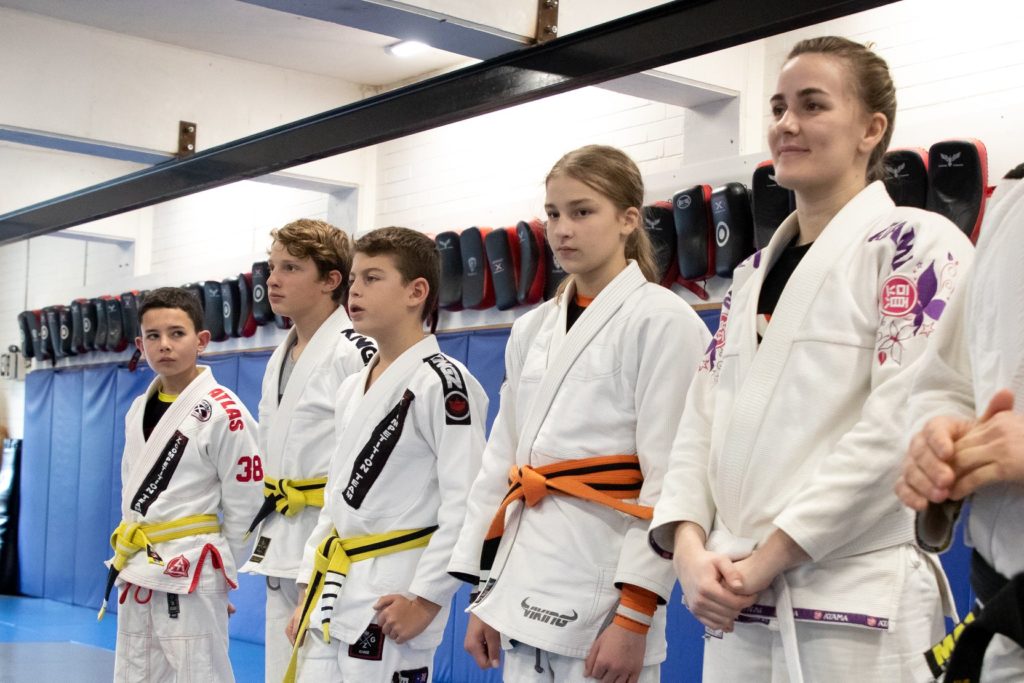
Martial arts is a top pick for parents when it comes to choosing extracurricular activities for their kids. Starting it at a young age can lead to all sorts of positives, as students apply their learnt behaviour to their schooling and personal environments. Although it primarily teaches self defence, there are multiple ways that children can develop from such training. Through consistent attendance, parents can observe things like improved discipline, concentration and listening. Most importantly, classes are designed for the young ones to have fun and enjoy themselves – and that’s a win-win for the whole family! If you, or someone you know, are still tossing up whether to enrol a son/daughter into the sport, keep scrolling down to get a better idea of what it’s really about.
1. Respect for others
One of the core fundamentals of martial arts is respect – to be mindful about the wellbeing of others and show consideration for the instructor. Classes begin and conclude with handshakes to promote a sense of acknowledgement. As a supervised contact sport, students learn when it’s appropriate to apply physical strength and when to restrain it. Putting this etiquette to practice makes children aware of those around them, growing them into selfless individuals.
2. Confidence
Having the knowledge to properly defend oneself is a rare and valuable skill to have. Being formally trained in martial arts gives children the courage to stand up for themselves and deal with obstacles in way that is non-threatening or violent. This level of self esteem breeds a humble can-do attitude and morale – qualities that are common amongst leaders.
3. A healthy lifestyle
Exercise plays a significant role in being healthy. As a full-body work out, martial arts is an enjoyable hobby that keeps children moving. Over time, students can expect to have increased flexibility, fitness and coordination. Combined with a balanced diet of fresh foods, adopting it as part of a healthy lifestyle will train children how to enjoy leisure activities that don’t involve television or electronic gadgets.
4. Hard work
“Promotions” allow children to feel the rewards of having strong work ethics. Gradings are conducted after terms or semesters, where coloured ranks or belts are given to those who are deserving of higher ranks. These awards are distributed based on traits like honour, sportsmanship, perseverance and self improvement. The idea of constant progression is instilled, making young practitioners realise the value of sticking to something and moving forward with it.
5. How to stay focused
Learning techniques and drills require students to pay close attention to their instructors. Self defence requires alert eyes and ears, and that means everyone stays attentive during class time. In an environment where it’s crucial to have good manners, kids are taught to ignore distraction and keep still while coaches are demonstrating.
6. Team work
Although martial arts is seen as an individual sport, it requires students to work within groups, as well as with partners. This constant interaction encourages children to communicate and work together, building social skills. When participating in exercises, students are often found helping each other to complete assigned moves. In addition, everyone is seen as equal, which promotes cultural awareness and engagement.
Related Tags: MMA Kids |
